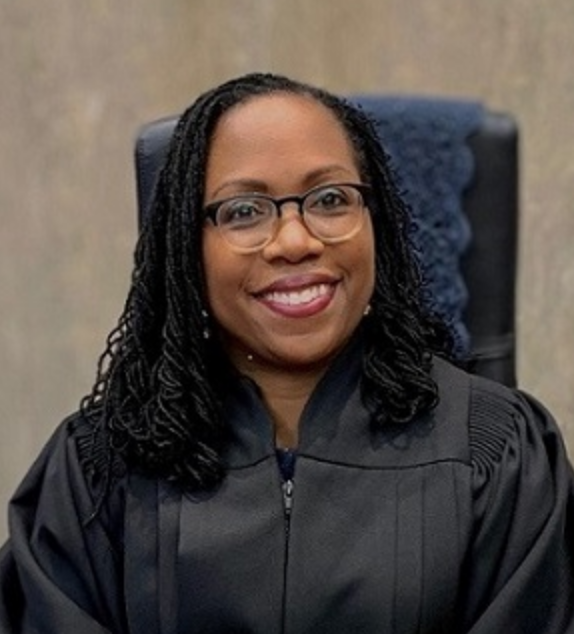This judge is getting mentioned as Merrick Garland's likely replacement, possible future SCOTUS nominee

U.S. District Judge Ketanji Brown Jackson. Photo from the U.S. District Court for the District of Columbia.
U.S. District Judge Ketanji Brown Jackson of Washington, D.C., is a leading contender to replace Judge Merrick Garland and a possible future nominee to the U.S. Supreme Court, according to a Washington Post commentary.
Garland is President Joe Biden’s choice to lead the U.S. Department of Justice. Jackson, 50, could be nominated to replace him on the U.S. Court of Appeals for the District of Columbia Circuit, according to the commentary. The appeals court is considered a stepping stone to a Supreme Court nomination.
Jackson, a graduate of Harvard University and Harvard Law School, is a former clerk for Justice Stephen G. Breyer. According to CNN, the chances that Breyer will retire this year are more likely, now that the Senate is controlled by Democrats. He did not respond to any questions about retirement plans.
Biden has pledged to nominate the first Black woman to the Supreme Court.
Jackson was reportedly vetted as a possible Supreme Court nominee in 2016, when Barack Obama was president. Obama instead chose Garland, who never got a hearing on his nomination.
Presidents often choose Supreme Court nominees with judicial experience, but “there aren’t very many Black women on the list,” the Washington Post said.
Only four Black women are currently on federal appeals courts, and all are older than age 65, according to the Washington Post.
A younger possibility for the Supreme Court is California Supreme Court Justice Leondra Kruger, a graduate of Yale Law School who is 44 years old.
But Jackson’s background makes her an attractive choice, according to the commentary.
She previously worked as an assistant public defender and as of counsel at Morrison & Foerster. No other justice has experience as a public defender.
Jackson also has real-world experience as a working mother, In a 2017 speech, she noted how difficult it can be for young mothers working in law firms.
“The hours are long; the workflow is unpredictable; you have little control over your time and schedule; and you start to feel as though the demands of the billable hour are constantly in conflict with the needs of your children and your family responsibilities,” she said.
Jackson’s parents were public school teachers, although her father later became a lawyer. Her uncle had a firsthand experience with the criminal justice system. He was sentenced to life in prison under a three-strikes law and served three decades before receiving clemency from Obama.
Among Jackson’s decisions:
• Jackson ruled in November 2019 that former White House counsel Don McGahn must appear before the House Judiciary Committee to testify in an investigation into how Russia influenced the 2016 presidential election. “Presidents are not kings,” Jackson wrote. “This means that they do not have subjects, bound by loyalty or blood, whose destiny they are entitled to control.”
• Jackson ruled in August 2018 that then-President Donald Trump exceeded his authority by issuing executive orders on collective bargaining for federal employees that conflict with congressional intent. One of the orders that she struck down made it easier to fire workers for bad performance and restricted issues that could be addressed in collective bargaining.
• Jackson ruled in September 2014 that a federal prosecutor who claims that he was wrongly fired because of an anxiety disorder can keep his name a secret in his lawsuit against the DOJ. She noted that those with mental health issues still face stigma.
• Jackson ruled in September 2015 for a deaf man who was denied a sign language interpreter when he was in prison.
See also:
ABAJournal.com: “Like Trump, Biden asks ABA to start judicial ratings process after nominations are made”



